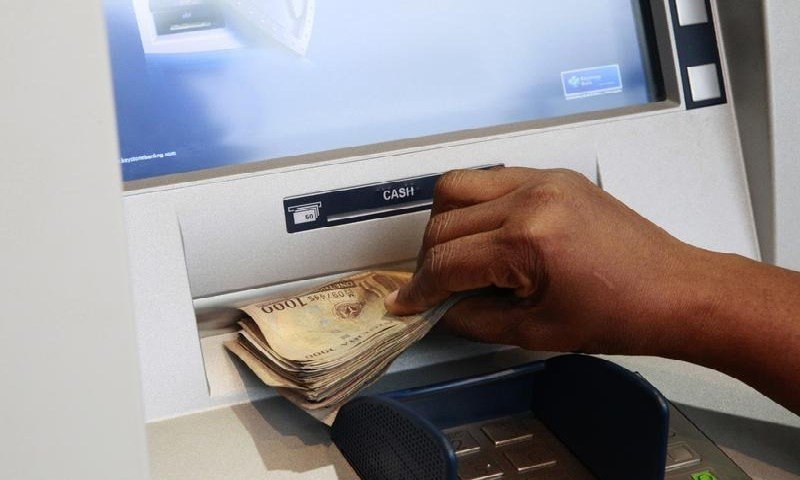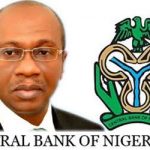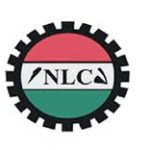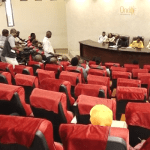The Central Bank of Nigeria (CBN) on Sunday released revised Guide to Bank Charges mandating banks to charge customers N35 for cash withdrawals from other banks’ Automated Teller Machines (ATMs). The charge, which was reduced from previous N65 fee, applies after the third withdrawal within one month.
The new guideline signed by Chibuzo Efobi for CBN Director, Financial Policy and Regulation Department, showed a downward review for electronic banking transaction charges to align with market developments and inclusion of new sections on accountability and sanctions for defaulting banks.
The guideline, which takes effect January 1, 2020, is in furtherance of CBN’s quest to make financial services more accessible and affordable to various stakeholders in the economy.
The Central Bank of Nigeria (CBN) on Sunday released revised Guide to Bank Charges mandating banks to charge customers N35 for cash withdrawals from other banks’ Automated Teller Machines (ATMs). The charge, which was reduced from previous N65 fee, applies after the third withdrawal within one month.
The new guideline signed by Chibuzo Efobi for CBN Director, Financial Policy and Regulation Department, showed a downward review for electronic banking transaction charges to align with market developments and inclusion of new sections on accountability and sanctions for defaulting banks.
The guideline, which takes effect January 1, 2020, is in furtherance of CBN’s quest to make financial services more accessible and affordable to various stakeholders in the economy.
The Central Bank of Nigeria (CBN) on Sunday released revised Guide to Bank Charges mandating banks to charge customers N35 for cash withdrawals from other banks’ Automated Teller Machines (ATMs). The charge, which was reduced from previous N65 fee, applies after the third withdrawal within one month.
The new guideline signed by Chibuzo Efobi for CBN Director, Financial Policy and Regulation Department, showed a downward review for electronic banking transaction charges to align with market developments and inclusion of new sections on accountability and sanctions for defaulting banks.
The guideline, which takes effect January 1, 2020, is in furtherance of CBN’s quest to make financial services more accessible and affordable to various stakeholders in the economy.
The Central Bank of Nigeria (CBN) on Sunday released revised Guide to Bank Charges mandating banks to charge customers N35 for cash withdrawals from other banks’ Automated Teller Machines (ATMs). The charge, which was reduced from previous N65 fee, applies after the third withdrawal within one month.
The new guideline signed by Chibuzo Efobi for CBN Director, Financial Policy and Regulation Department, showed a downward review for electronic banking transaction charges to align with market developments and inclusion of new sections on accountability and sanctions for defaulting banks.
The guideline, which takes effect January 1, 2020, is in furtherance of CBN’s quest to make financial services more accessible and affordable to various stakeholders in the economy.
The Central Bank of Nigeria (CBN) on Sunday released revised Guide to Bank Charges mandating banks to charge customers N35 for cash withdrawals from other banks’ Automated Teller Machines (ATMs). The charge, which was reduced from previous N65 fee, applies after the third withdrawal within one month.
The new guideline signed by Chibuzo Efobi for CBN Director, Financial Policy and Regulation Department, showed a downward review for electronic banking transaction charges to align with market developments and inclusion of new sections on accountability and sanctions for defaulting banks.
The guideline, which takes effect January 1, 2020, is in furtherance of CBN’s quest to make financial services more accessible and affordable to various stakeholders in the economy.
The Central Bank of Nigeria (CBN) on Sunday released revised Guide to Bank Charges mandating banks to charge customers N35 for cash withdrawals from other banks’ Automated Teller Machines (ATMs). The charge, which was reduced from previous N65 fee, applies after the third withdrawal within one month.
The new guideline signed by Chibuzo Efobi for CBN Director, Financial Policy and Regulation Department, showed a downward review for electronic banking transaction charges to align with market developments and inclusion of new sections on accountability and sanctions for defaulting banks.
The guideline, which takes effect January 1, 2020, is in furtherance of CBN’s quest to make financial services more accessible and affordable to various stakeholders in the economy.
The Central Bank of Nigeria (CBN) on Sunday released revised Guide to Bank Charges mandating banks to charge customers N35 for cash withdrawals from other banks’ Automated Teller Machines (ATMs). The charge, which was reduced from previous N65 fee, applies after the third withdrawal within one month.
The new guideline signed by Chibuzo Efobi for CBN Director, Financial Policy and Regulation Department, showed a downward review for electronic banking transaction charges to align with market developments and inclusion of new sections on accountability and sanctions for defaulting banks.
The guideline, which takes effect January 1, 2020, is in furtherance of CBN’s quest to make financial services more accessible and affordable to various stakeholders in the economy.
The Central Bank of Nigeria (CBN) on Sunday released revised Guide to Bank Charges mandating banks to charge customers N35 for cash withdrawals from other banks’ Automated Teller Machines (ATMs). The charge, which was reduced from previous N65 fee, applies after the third withdrawal within one month.
The new guideline signed by Chibuzo Efobi for CBN Director, Financial Policy and Regulation Department, showed a downward review for electronic banking transaction charges to align with market developments and inclusion of new sections on accountability and sanctions for defaulting banks.
The guideline, which takes effect January 1, 2020, is in furtherance of CBN’s quest to make financial services more accessible and affordable to various stakeholders in the economy.














